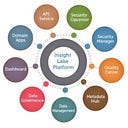GenAI — Best Practices for Using Vector DB Collections
Vector databases are designed to store and retrieve high-dimensional vectors efficiently, making them essential for applications in machine learning, natural language processing, and computer vision. Here are some best practices to ensure optimal performance and data integrity when using vector databases:
Understanding Vector Databases
Vector databases store vectors, which are mathematical objects with both magnitude and direction, to represent data points. These databases are crucial for tasks that require handling high-dimensional data, such as similarity searches and pattern recognition.
Key Best Practices
- Choose the Right Indexing Technique: The indexing technique should align with the specific needs of your application. Common techniques include HNSW (Hierarchical Navigable Small World) and IVF (Inverted File).
- Ensure Data Quality: Clean and preprocess data before storing it in the vector database. This step includes removing inconsistencies, duplicates, and irrelevant information to enhance data quality.
- Monitor Performance: Regularly monitor the performance of your vector database to ensure it meets the application’s requirements. Use data observability tools to gain real-time insights into performance metrics.
- Test Thoroughly: Conduct extensive testing before deploying the application to production. This helps in identifying potential issues and ensures the reliability of the database.
- Data Security and Privacy: Implement robust encryption and access controls to protect sensitive data. Ensure compliance with data protection laws like GDPR and HIPAA.
- Scalability: Plan for growth by forecasting future data requirements and infrastructure needs. Periodically evaluate and upgrade your infrastructure to accommodate expanding datasets seamlessly.
Vector Databases and Their Max Collection Limits
Here is a table summarizing some popular vector databases and their maximum collection limits:
Single Collection vs. Customer-Specific Collections
When designing a vector database, one critical decision is whether to use a single collection for all customer documents with hybrid search using customer ID in metadata or to use customer-specific collections. Here are the considerations for each approach:
Single Collection with Hybrid Search
Advantages:
- Simplified Management: Managing a single collection is simpler and reduces administrative overhead.
- Resource Efficiency: A single collection can be more resource-efficient, as it avoids the overhead of managing multiple collections.
- Scalability: Easier to scale as there is only one collection to manage and optimize.
Disadvantages:
- Complex Queries: Queries might become more complex as they need to filter by customer ID.
- Potential Performance Bottlenecks: High query volume from multiple customers could lead to performance bottlenecks.
- Security Risks: Ensuring data isolation and security for each customer within a single collection can be challenging.
Customer-Specific Collections
Advantages:
- Isolation and Security: Each customer’s data is isolated, enhancing security and simplifying access control.
- Performance Optimization: Collections can be optimized individually based on customer-specific usage patterns.
- Simplified Queries: Queries are simpler and more straightforward, as they do not require filtering by customer ID.
Disadvantages:
- Increased Management Overhead: Managing multiple collections increases administrative complexity and overhead.
- Resource Intensive: More resources are required to maintain and optimize multiple collections.
- Scalability Challenges: Scaling multiple collections can be more challenging and resource-intensive.
Conclusion
Choosing between a single collection and customer-specific collections depends on the specific requirements and constraints of your application. For scenarios where security and performance isolation are paramount, customer-specific collections are advisable. However, for applications where resource efficiency and simplified management are critical, a single collection with hybrid search might be more suitable.By adhering to these best practices and carefully considering the architecture, organizations can effectively leverage vector databases to enhance their data management and analytical capabilities.
About — The GenAI POD — GenAI Experts
GenAIPOD is a specialized consulting team of VerticalServe, helping clients with GenAI Architecture, Implementations etc.
VerticalServe Inc — Niche Cloud, Data & AI/ML Premier Consulting Company, Partnered with Google Cloud, Confluent, AWS, Azure…50+ Customers and many success stories..
Website: http://www.VerticalServe.com
Contact: contact@verticalserve.com
